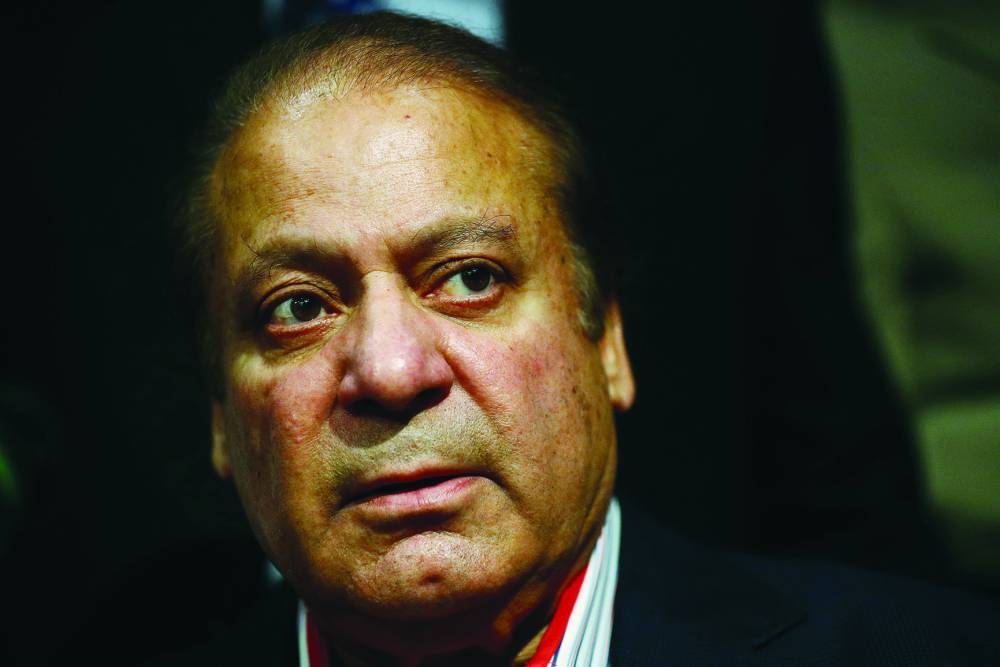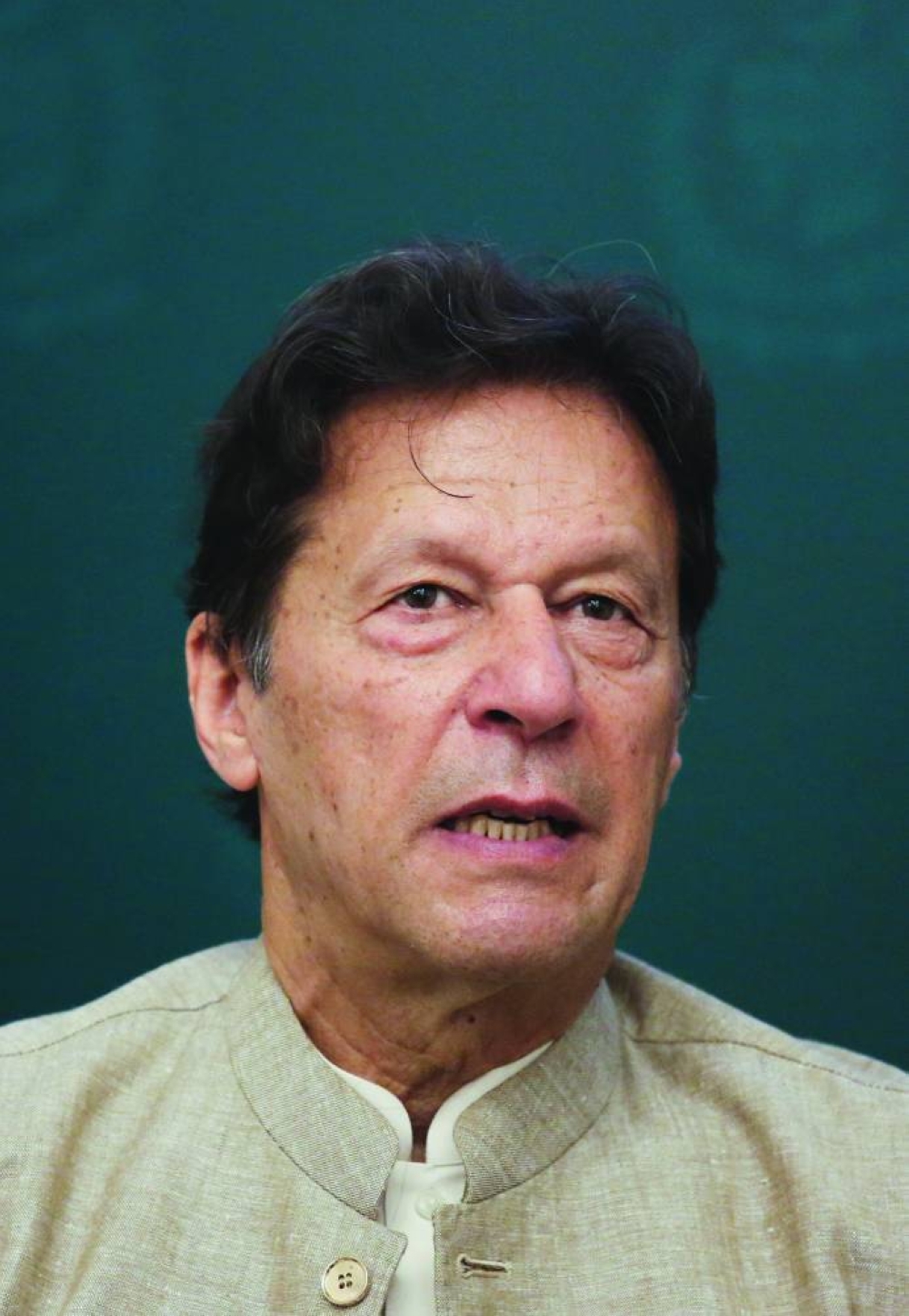Pakistan’s Supreme Court yesterday scrapped lifetime bans on contesting elections for people with criminal convictions, paving the way for Nawaz Sharif to run for prime minister for a fourth time.
Sharif’s party, Pakistan Muslim League - Nawaz (PML-N), is considered a front runner to win elections scheduled for February 8, with Sharif’s main rival, former prime minister Imran Khan, in jail over a disputed conviction and barred from contesting for five years.
In his ruling, Chief Justice Qazi Faez Isa, who headed a seven-member panel of judges, said the life bans “abridge the fundamental right of citizens to contest elections”.
The court’s decision was 6-1 in favour of overruling a previous 2018 decision that imposed life bans on politicians convicted under certain provisions of the constitution.
Sharif, 74, was found guilty in 2017 of dishonest practices, which qualified for a ban under the 2018 ruling. Last year, the courts overturned the two convictions.
While Sharif was not an applicant in the latest Supreme Court case, which was filed by other politicians, the ruling makes him eligible to contest the polls as more than five years have elapsed since 2017.
Khan, 71, whose party won the last elections in 2018, will not benefit from the ruling as it abolishes only life bans, which means the cricketer-turned-politician remains disqualified until 2028.
“Alhamdulillah (praise be to God), today the dark chapter of judicial injustice of lifelong disqualification to make Nawaz Sharif a target of political revenge has finally ended,” Marriyum Aurangzeb, a PML-N leader, said in a post on social media platform X.
One of Khan’s lawyers, Intazar Hussain Panjutha, described the scrapping of the ban as the “death of law and the constitution”.
Sharif spent time in jail before leaving for London in 2019 under an unprecedented bail on medical grounds for eight weeks, but he defied the timeout and did not return until October last year. The Lahore High Court, which ordered the medical leave following an affidavit given by his brother Shehbaz as guarantee, did not question the absence.
Sharif blamed the military for being behind his removal from office in 2017, which it denies. A standoff between Khan and the military afforded Sharif the political space to mount a bid to return to Pakistan’s top office.
Pakistan will vote in elections on February 8, with rights groups warning the ballot will lack credibility with the immensely popular Khan barred from contesting.
Sharif, on the other hand, has seen the numerous legal cases plaguing him voided in alarmingly quick succession.
Analysts say the 74-year-old is benefiting from a reformed relationship with the powerful military establishment, which has long dictated the politicians who hold high office.
Nawaz’s brother Shehbaz passed legislation in his tenure as prime minister last year dictating that bans from office be limited to five years.
Doubts had lingered that the move might clash with the decision barring Nawaz and numerous other politicians under a constitutional clause demanding they be “honest and righteous”.
But the supreme court ruled the constitution does not dictate a disqualification period and backed the five-year ban legislated last year, saying it made exclusions subject to “the due process of law”.
“The ruling goes in the favour of Nawaz Sharif, who will now be able to contest the elections, which will pave the way for his return to power,” analyst Zahid Hussain told AFP.
“These clauses of the constitution have been very ambiguous, but now with this ruling a sword hanging over the politicians has been removed.”
Sharif is set to lead his Pakistan Muslim League (Nawaz) into the ballot, although campaigning has yet to kick off. His most potent opponent and former prime minister Khan, 71, has not even been allowed to register his candidacy.
Former international cricket star Khan was ousted controversially by a parliamentary no-confidence vote in 2022 after souring relations with the military’s top brass — historically the bane of elected leaders in Pakistan.
But he waged an unprecedented campaign of defiance, accusing them of conspiring with the United States to end his term and of plotting an assassination attempt which saw him wounded.
He has been jailed since August, buried under an avalanche of legal cases, whilst his Pakistan Tehreek-e-Insaf (PTI) party has been largely dismantled by a brutal crackdown.
Sharif — who has never completed a full term in his trio of premierships — has always maintained his numerous corruption convictions were politically motivated.
Like Khan, he once blamed the military establishment for engineering them, but has tempered his anti-army rhetoric as his fortunes have transformed over the past months.
International
Apex court paves way for Sharif to run for PM again
His main rival Imran Khan not allowed to register for candidacy

Nawaz Sharif

Imran Khan
